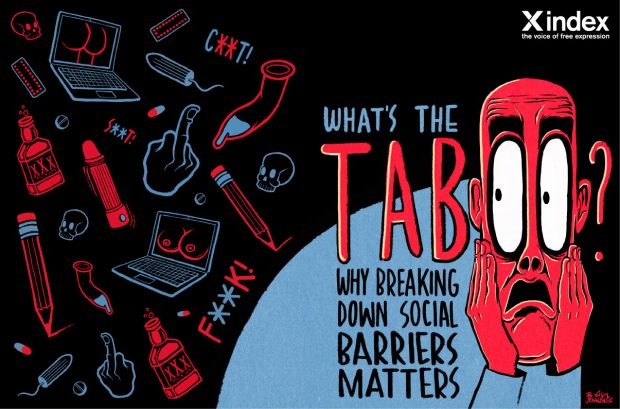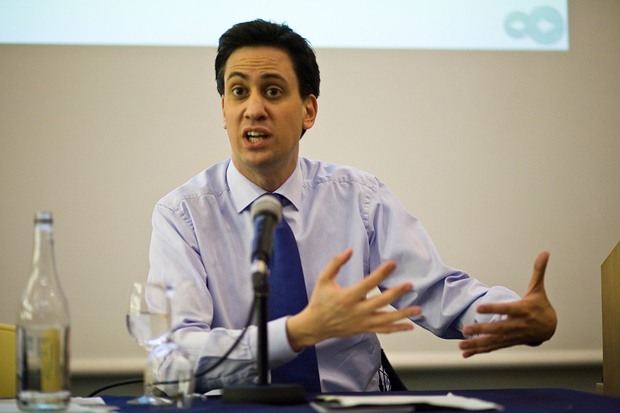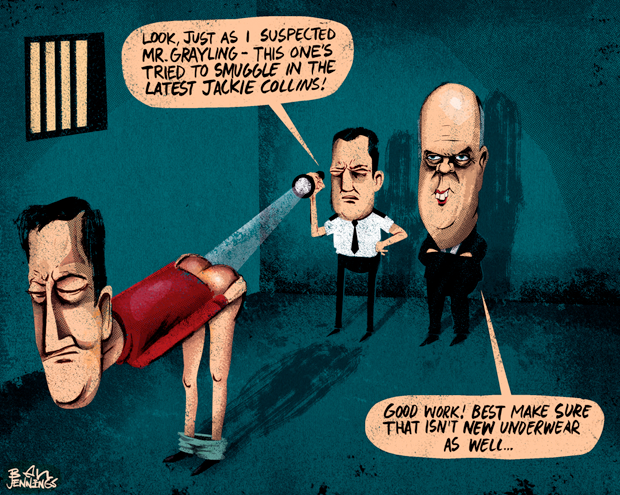6 Jun 2016 | Events, mobile

Join Index on Censorship for a fast and furious quiz exploring what you can and can’t say in today’s society.
Watch our panelists struggle to evade the censor, cast your own vote on where to draw the line, and expect plenty of no-go subjects to come out from the shadows.
Featuring Guardian and Index on Censorship cartoonist Martin Rowson, comedian Athena Kugblenu, theatre-maker Nadia Latif, director of Homegrown, and journalist Ian Dunt of politics.co.uk and Erotic Review.
When: 6 Aug 2016, 2.10pm
Where: The Forum, Wilderness, Oxfordshire
Tickets: From the Wilderness site
Wilderness takes place on 4 – 7 August 2016, at Cornbury Park set in Oxfordshire.
27 Mar 2014 | News and features, Politics and Society, Religion and Culture, United Kingdom, Young Writers / Artists Programme
There are people out there who claim they can make things go viral. They are lying.
They are the digital version of economists, confidently asserting they can predict the behaviour of millions of barely-rational people, when nothing of the sort is possible. You can maximise the chances of something going viral but you can’t guarantee it, let alone predict it.
In the last few months, I’ve written about a dying man being deported by the Home Office, the decision to secretly restart removals to Somalia and a Home Office document which admits they have no idea whether their drug policy is working. They do fine, but you can often watch stories you spent time working on go out to the usual liberal minded folk, whirl around for a bit and then die a respectable death, with little to no impact on the wider world.
And then occasionally something explodes. A week and a half ago I saw Frances Cook, of the Howard League for Penal Reform, a brilliant but little-understood campaign group, tweeting about justice secretary Chris Grayling’s Incentives and Earned Privileges scheme, which was brought in last November.
It was part of his attempt to look tough on prisoners, the latest chapter in a seemingly endless cycle of tabloid coverage of supposedly cushy prisoner life, followed by a draconian clampdown by the secretary of state and stubbornly high reoffending rates.
Justice secretaries, like all ministers, are far more interested in the views of tabloids than academic researchers. If they valued the latter, they would build small prisons in the local community so inmates kept regular contact with their families, structure internal learning programmes to improve literacy levels and up-skill people so that they don’t rely on crime once they get out. But they don’t listen to researchers. They listen to tabloids, so they end up trying to flex their muscles, which in Grayling’s case is not an agreeable image.
The purpose of the scheme is to make prisoners earn spending money through discipline and participating in their rehabilitation programme. They can then use this (tiny) amount of money to buy things like toothpaste, underwear or, if they want, books.
Core to this project, Grayling says, is the idea that parcels from family and friends must be stopped. The justice secretary has many reasons for this. Perhaps it is to stop gifts making his earned privileges redundant. Perhaps it is because it is impossible to securely scan all the parcels. Perhaps it is because the parcels are sometimes used for contraband. It is hard to tell, because he is prone to using any number of these excuses as he goes.
But regardless of the reason, the Ministry of Justice banned prisoners receiving books or magazines by mail. Books were now considered a reward, not a tool for rehabilitation.
I asked Frances to write politics.co.uk a blog post on it, with a focus on the restrictions on books. But I was in no particular rush. I figured it would be one of those worthy pieces we publish, which get a bit of an airing and some decent traffic for a couple of days, then respectably fade away. I didn’t bother writing a news story about it, given the policy was actually four months old. When she asked what the deadline was, I was rather flippant. “Whenever really,” I told her. “It’s not very time sensitive.”
I published it late on Sunday morning and went off for lunch. The first sign that something had happened came when I went to the loo and checked Twitter (always a dangerous juggling act). Billy Bragg and Caitlin Moran were tweeting it. ‘That’ll get some traffic in,’ I thought.
By the time I went to bed it has been retweeted by the great, the good and everyone in between. A petition had been launched on Change.org.
I talked to Frances on the phone. For someone from her perspective, it is strange when this happens. Groups like the Howards League deal with stories about people being killed in prison and no-one gives a damn. The campaigners and prison officer groups I’ve talked to have been taken aback by the reaction to the piece, and often not a little frustrated. Perhaps people should be more concerned about the fact that inmates are being locked up two-to-a-cell, forcing them to go through the grim humiliation of going to the toilet in front of each other, one told me.
Their problem was mine too: Why do some issues, which might ultimately be more trivial than others, go viral?
In this case it is to do with the almost-mystical power of books in the middle class imagination.
There is a trivial side to this – the bourgeois pretention around books as idol-worship, typified by the stigma around marking your spot by turning the corner of the page. It is a fetishisation of the book, as if Waterstones were one of those Middle Aged tradesmen flogging you a strand of Jesus’ hair. It’s nonsense. Books are nothing but a machine, a tool to get information from brain A to brain B. They are beautiful, but it is a beauty which survives quite well when stuffed into the back pocket of a pair of jeans or covered in coffee stains.
The novel allows access to characters inner life in a way film never can. It is the most empathetic of art forms. Political books, from Paine to Orwell, weigh heavily in the battle of ideas in a way other mediums struggle to match. Even seemingly turgid course text books stand as a tribute to people’s capacity for self-improvement.
These are all vital functions of the book which inmates could benefit from. But for most of them, the importance of books is more sombre and rudimentary. Two-thirds of ex-offenders have the literacy and numeracy levels of an 11-year-old. What they need, more than anything, is young adult literature – appealing, simply written novels which can improve their core reading skills. Perhaps that sounds patronising. It is not meant to be. It is meant to be realistic.
Supporters of the Grayling policy in government told me I was kicking up a fuss so that some mugger could get his hands on a Harry Potter book. I accepted that proposition proudly. It is important that he does. It will do nothing to encourage him mugging someone and might just have a small role in discouraging it.
Anything that stands in the way of a prisoner reading anything is a lunatic act. It costs them more and it costs us more.
This article was posted on March 27, 2014 at indexoncensorship.org
24 Jan 2014 | News and features, Politics and Society, United Kingdom

If you want to know what a party stands for, watch its leader’s speeches. But if you want to know what they’re going to do, read their proposed legislation.
It’s in the details that you learn what a party is all about. Ed Miliband has made several set-piece speeches promising a Labour commitment to civil liberties. But dig into the legislation they support and you find the same old attitudes, making the same old mistakes.
Backbench Labour MP Thomas Docherty has a private members bill going through the Commons today called the Armed Forces (Prevention Of Discrimination) Bill. It’s a shoddy piece of work. He wants assaults – verbal or physical – against members of the armed forces or their families to be treated as aggravated. And he wants them to be included in equality legislation prohibiting discrimination.
None of this should be worth mentioning. Backbench MPs have all sorts of embarrassing and reprehensible ideas, the majority of which never see the light of day. But this time Labour swung its weight behind the private members bill. Shadow defence secretary Vernon Coaker said the party would back Docherty’s efforts and demanded the government do the same.
Coaker was playing a game of chicken with the Ministry of Defence. It would win him a good write-up in the red-tops, a part of the press Labour is struggling to get any traction with. And he guessed that the fear of looking insufficiently supportive of ‘our boys’ would force defence secretary Phillip Hammond’s hand.
Had he considered what the proposals might actually entail for freedom of speech, Coaker might have thought again. But consideration and populism do not make good bedfellows.
The bill would blur the boundaries of discrimination, so that it no longer refers only to who you are, but what you do. This would be a massive legal change. No longer would discrimination law only apply to fundamental human qualities like sexuality or race, it would now be expanded to include commentary on what someone does in their working life.
It would do this in two ways. Firstly, it would expand the common use of aggravated assault from race and religion to membership of the armed forces. Secondly it would include membership of the armed forces under the Equality Act’s protections against discrimination in the provision of goods and services.
The ways in which this type of lazy lawmaking can be abused are not difficult to imagine.
Imagine the squaddies who enter a pub, loud, drunk and aggressive. Unfortunately, this is not rare. Recent Lancet research showed a strong correlation between aggressive behaviour in Britain and psychological trauma experienced in overseas theatres like Afghanistan and Iraq. This puts the barman in an unenviable position. If he allows them in, he risks violence. If he bars them, he is subject to prosecution under equality legislation.
Imagine the anti-war campaigner arguing with the squaddie about whichever conflict Britain is involved in at the time. How strenuous do his arguments have to be before we decide they constitute ‘verbal assault’? If he tells the squaddie that he spilled blood for oil? Or that soldiers are baby killers? The law threatens to criminalise anything but the most tepid and restrained anti-war argument.
Most importantly of all, what precedent does it set? How long will it be before other professions are entitled to protection under equality law? The police would follow the armed forces soon enough. And after them would come the MPs. It is not hard to imagine a situation in which a banker is attacked by a mob and politicians then include them in the blanket of extra legal rights.
Before we know it whole professions would enjoy much stronger legal protections than the rest of the population. The bill is a threat against the principle that all British subjects have equal rights and freedoms.
Mercifully, the government has not taken the bait. An MoD spokesperson told me they didn’t believe legislation was necessary, but that they were instead pursuing their voluntary ‘corporate covenant’ with the armed forces.
But Labour’s decision to swing its weight behind this dangerous bit of populism speaks volumes about the party’s approach to these issues. Despite Miliband’s high talk about civil liberties when he took the leadership of the party, it still appears to have the same crude, dismissive view of freedom of speech as it did under Tony Blair and Gordon Brown.
It’s the same old deal. They are willing to trade away British legal standards in exchange for a good write-up in the Sun.
This article was posted on 24 January 2014 at indexoncensorship.org



